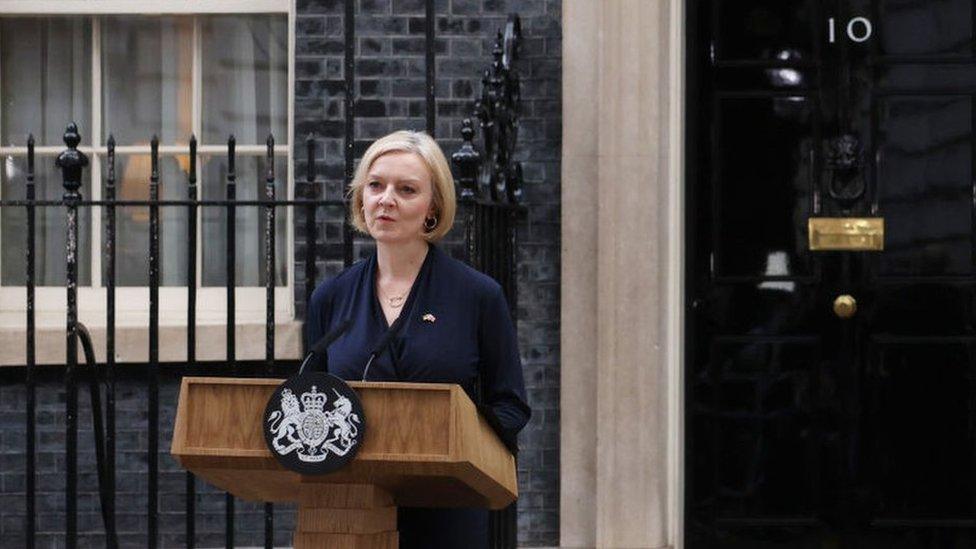Truss resignation: Global media ask what's happened to Britain
- Published
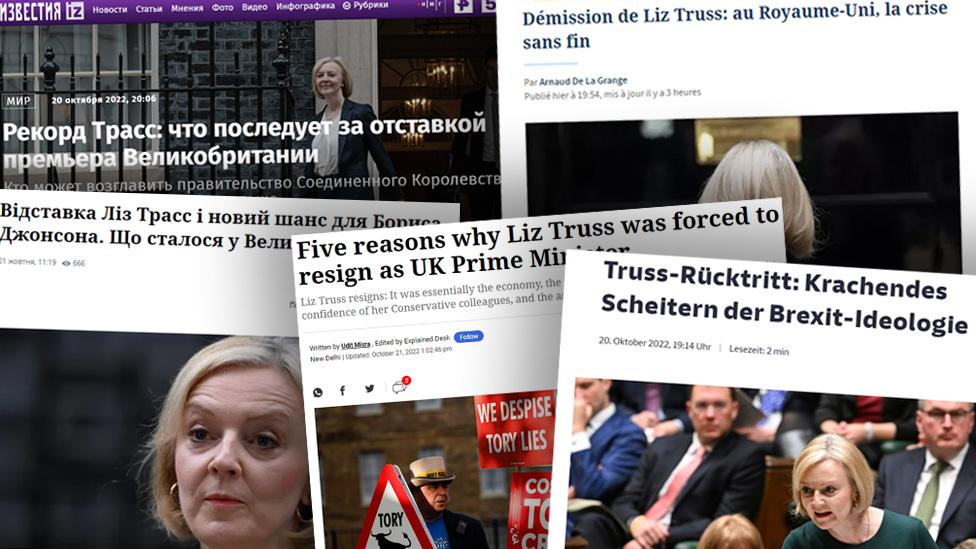
Media commentators reflect on what Britain's political turmoil heralds
British politics rarely troubles the front pages of international media.
But in the last few days, all eyes have turned towards Liz Truss's short tenure in Number 10.
"The past six weeks have been not so much a cautionary tale as much as a textbook example of what happens when political ideologues are let off the leash, allowed to shut out anyone with opposing views and given the keys to the kingdom," argues Rob Harris in Australia's Sydney Morning Herald, external.
"Britain ruled India for 200 years, but see the twist of fate," says an anchor on India's Aaj Tak TV channel. "Today, the same British political system has weakened so much that their Prime Minister Liz Truss had to resign from her post in barely 44 days."
'What happened to British politics?'
Closer to home, Europeans saw another culprit: Brexit.
"What happened to British politics, to its reputation of stability and moderation, its venerable parliament, buffeted by accelerated convulsions since Brexit?" asks France's Le Monde.
Truss "tried to put the Brexit ideology into practice", Germany's Sueddeutsche Zeitung notes. "As soon as the shackles of the EU are thrown off and taxes are lowered, an almost fairytale economic growth should be triggered, so the theory goes."
The UK and its institutions have traditionally been revered on the continent. But its parliament has been a "madhouse" since the Brexit vote, adds another German paper, Die Welt.
"Again and again, politicians fail when it comes to leaving the EU - and there are good reasons for that."
Italian media reacted angrily to suggestions that British politics have reached Italian levels of chaos - Italian politics is notorious for its rapid turnovers of governments. Commentators rushed to point out that Westminster and Brexit are to blame.
The UK political crisis "has no parallels with Italy or any other country", argues the leading daily Corriere della Sera.
The renewed dispute "will paralyse the government again, instead of tackling the country's numerous challenges such as the energy crisis, the consequences of Brexit and Scotland's quest for independence," Germany's Frankfurter Rundschau newspaper adds, pointing out this turmoil comes as more and more people in Britain are struggling to cope with the cost of living crisis.
'Feels duty and fears repercussions'
But there are positives to be taken.
In the Middle East, some commentators contrast Truss's decision favourably with the reluctance of leaders in the Arab world to step down.
"This is the difference between the courage of the leader appointed through elections and who respects [their] people, and the military man who comes atop a tank and scares the people with weapons," says Egypt's Al-Masriyun newspaper editor.
"Is there a single example among politicians in Iraq showing this English patriotic spirit which feels duty and fears for repercussions on her country's economy?" asks Iraqi opposition politician Abdulamir Altharb.
Yet others see warnings.
"As fun as it might be for outsiders to gawk at the political chaos engulfing the UK, Prime Minister Liz Truss's resignation Thursday is a sideshow," warns Joseph C Sternberg in the US's Wall Street Journal, external.
"The bigger problem is that recent events in Britain are an alarming vision of a fate that potentially awaits all of us in developed economies."
Related topics
- Published20 October 2022
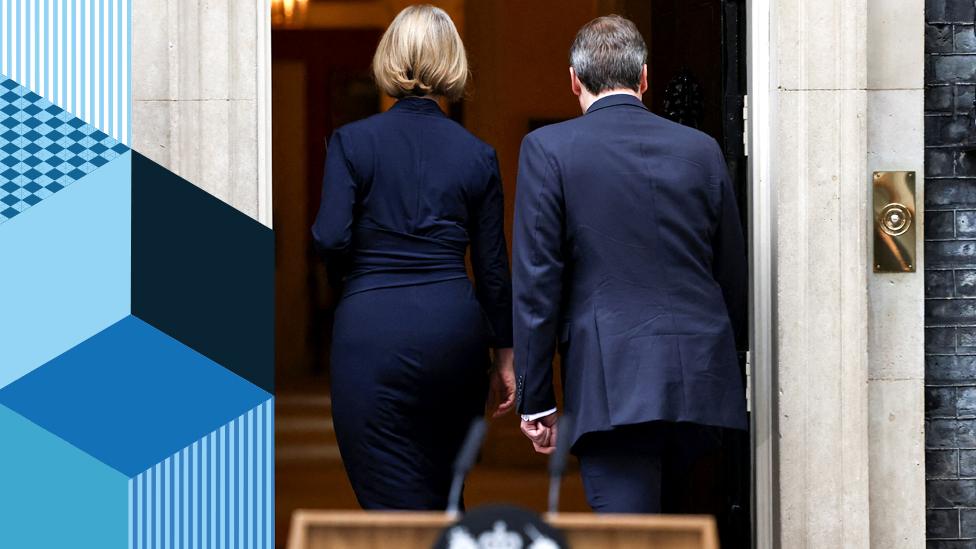
- Published20 October 2022
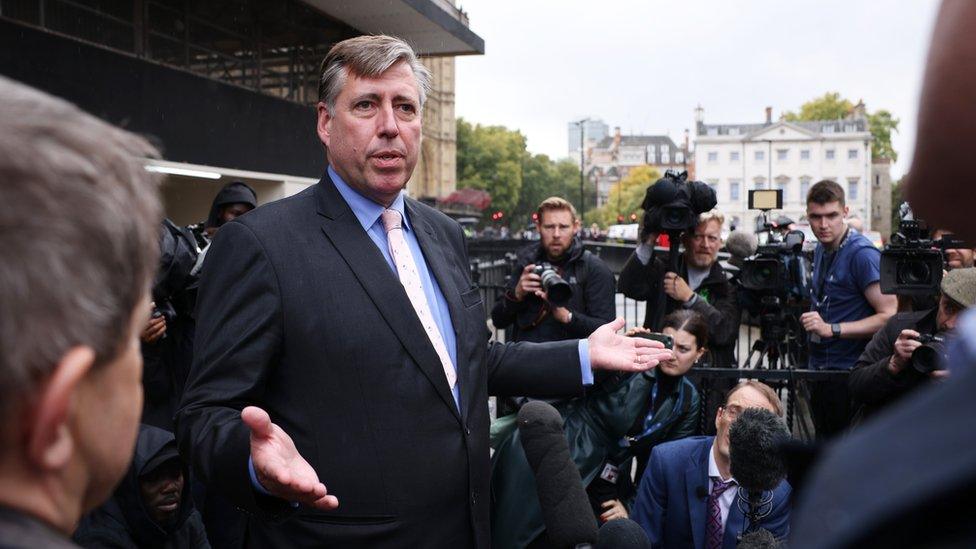
- Published23 October 2022
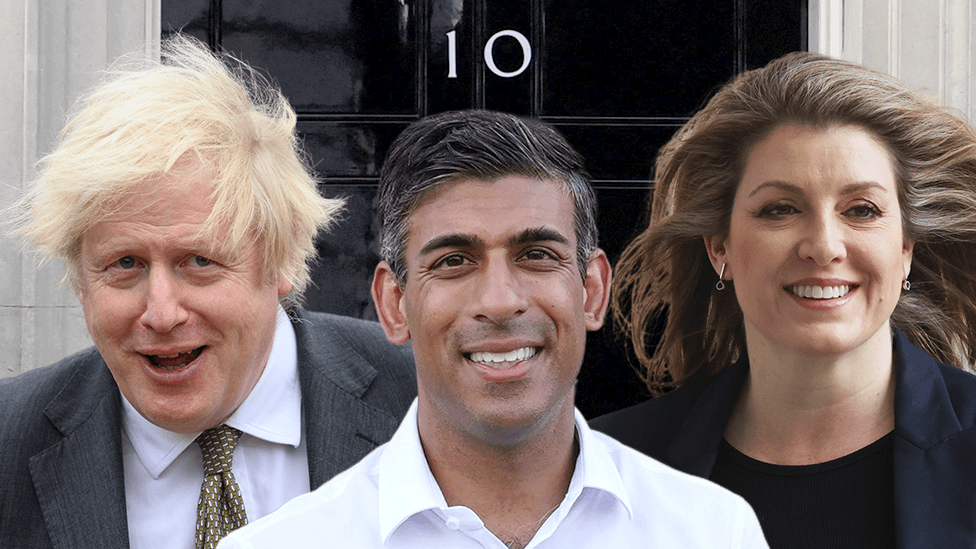
- Published19 October 2022
